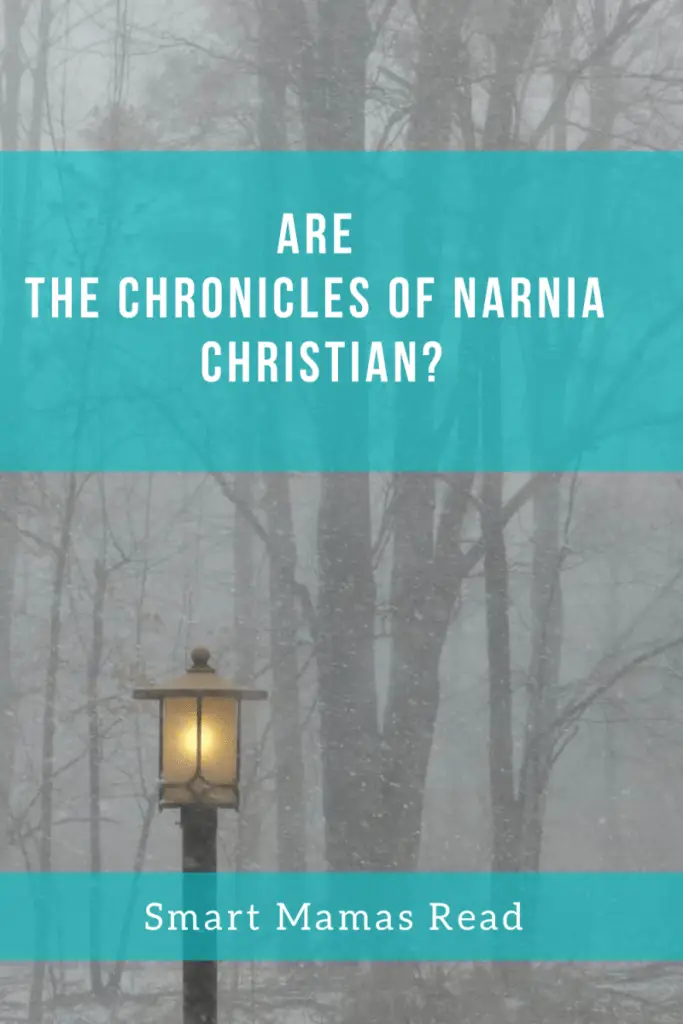
If you’ve seen the Narnia movies or read the series, you might wonder if the books were written to portray religious truth. What is the origin of The Chronicles of Narnia? Are they meant to be Christian stories?
The author of The Chronicles of Narnia, C.S. Lewis, had a well-publicized conversion from atheism to Christianity. Lewis himself denied that the books were allegorical, but said did they did have Christian elements. Clearly the stories contain Christian symbols and themes.
In the series, children from England are magically transported to the fictional world of Narnia. In Narnia the forces of good and evil war against each other and the animals can talk. The British children enter as heroes, forces for good.
They are compelling stories, simple and profound masterpieces.
Was C.S. Lewis a Christian?

Clive Staples Lewis was a prominent atheist whose conversion to Christianity is well documented, well publicized and clearly explored in his other published works.
He was a well-known atheistic professor at Oxford at the time of his conversion to Christianity. He wrote extensively, books on Christian theology and apologetics as well as fiction that dealt with Christian topics, such as The Screwtape Letters.
When Lewis was asked to write for the new magazine, Christianity Today, he declined saying he felt his gifts were best used to “smuggle theology behind enemy lines”.
The Chronicles of Narnia were the perfect vehicle.
The forces of good and evil certainly portray a Christian world view, with good prevailing.
What are the Christian themes in the Narnia books?
The Magician’s Nephew parallels the Creation account.
The Lion, the Witch and the Wardrobe clearly parallels the crucifixion and resurrection of Jesus Christ, who voluntarily sacrificed his life as a substitution for the guilty.
Edmund is a picture of every sinner redeemed by the sacrificial death of God incarnate. His spiritual freedom is a total and complete gift, outside of his own ability to influence.
Aslan the Lion is a Christ figure as the Bible often refers to Jesus Christ as the Lion of Judah.
The Last Battle addresses end times events such as the destruction of the world, final judgment and eternity in heaven.

One of my favorite passages occurs in The Voyage of the Dawn Treader, a sea voyage in Narnia experienced by Lucy, Edmund and their horrid cousin, Eustace.
Eustace is a bully. In the story, Eustace magically wakes up in the form of a dragon. In this state, he begins serious self contemplation and repents of his selfishness and meanness. He begins to feel compassion and a desire to help others.
His transformation becomes visibly complete when he’s trying to shed his dragon skin, but is only making superficial progress. Finally, Aslan the lion digs his claws deep into the flesh and rips off the dragon carcass to expose the boy beneath.
It’s not hard to see the picture here of God’s transforming work in the life of a repentant.
When the film makers stay true to the story, the film editions convey the same themes.
Can the Narnia books be enjoyed without exploring the Christian themes?
The fact that Lewis intended to portray Christian themes doesn’t ruin the fantasy for those who don’t embrace Christianity. A good story is a good story. Period.
Every story that touches our deepest human needs will resonate.
I believe that’s why Anne of Green Gables enjoys a cult following. Anne embodies the deepest longings for home, family and belonging as an orphan looking for love. And, more subtly, Marilla and Matthew, the spinster and bachelor siblings, express these same needs and find fulfillment in the family they create with Anne.
In the same way, The Chronicles of Narnia touch our deepest need to be known and saved by a loving God. We desire a personal relationship with a God who knows our name, cares about our needs, loves us and sacrifices to his own hurt for our good.
Acknowledging those needs consciously doesn’t have to happen to appreciate either series.

Even though the stories have merit on their own, I think Narnia is a great way to introduce children to Christian concepts, in the same way that Veggie Tales does. Some lessons are explicitly biblical, others are more subtle. Either way is effective for teaching truth.
Lewis’ intent to smuggle theology manifests itself in a conversation Aslan has with Lucy about returning to England.
“It isn’t Narnia, you know,” sobbed Lucy. “It’s you. We shan’t meet you there. And how can we live, never meeting you?”
“But you shall meet me, dear one,” said Aslan.
“Are -are you there too, Sir?” said Edmund.
“I am,” said Aslan. “But there I have another name. You must learn to know me by that name. This was the very reason why you were brought to Narnia, that by knowing me here for a little, you may know me better there.”
Drawbacks and weaknesses
Strong Christian themes and symbolism doesn’t necessarily mean that Narnia is a good place to get your theology. I would say the same thing about The Shack. Fiction can be a great vehicle to stretch your imagination and challenge your thinking. It’s probably not the best place to get your doctrine. Metaphors and allegories tend to break down at some point.
There’s also the problem of fine points of doctrine that don’t have universal agreement among Christians. Lewis’ writing convey his personal beliefs whether or not the majority of Christians agree with him.
Great literature pleases all ages
Like all the greatest works of art produced for children, the stories have universal appeal across the age spectrum. Adults can appreciate the symbolism and themes in a way that children will not. It doesn’t matter. The stories stand on their own merit.
What inspired C.S. Lewis to write The Chronicles of Narnia?


